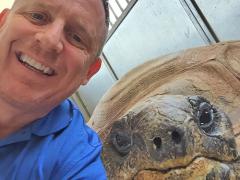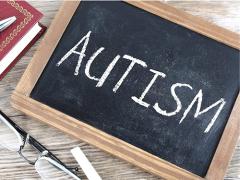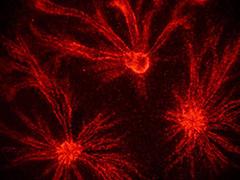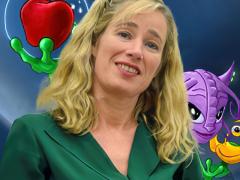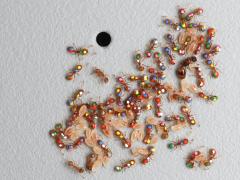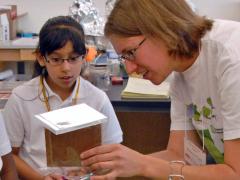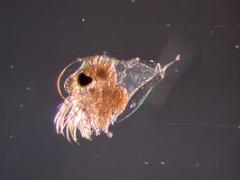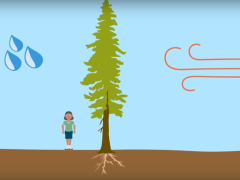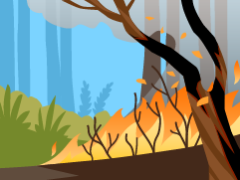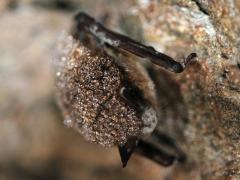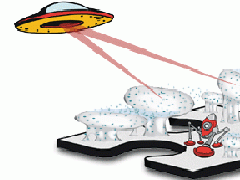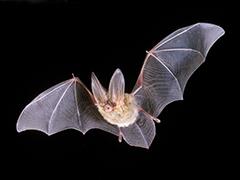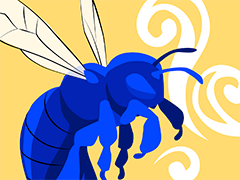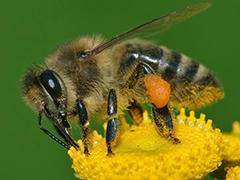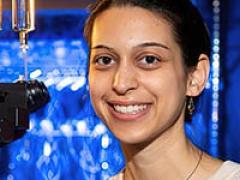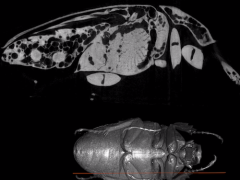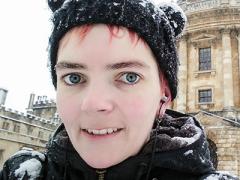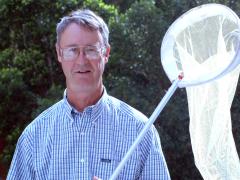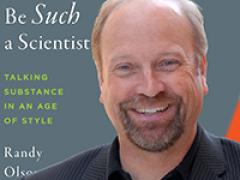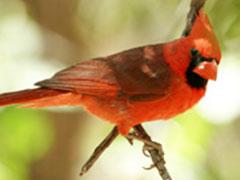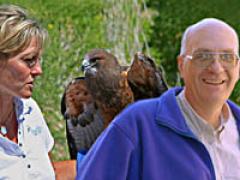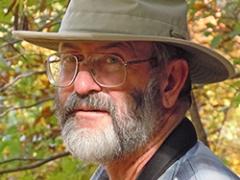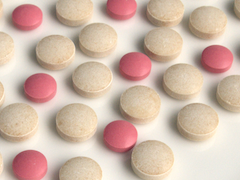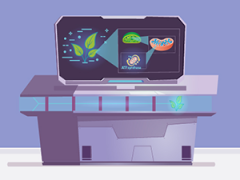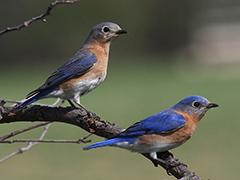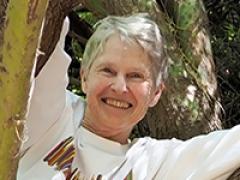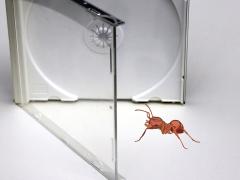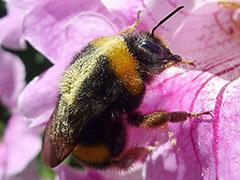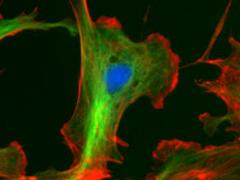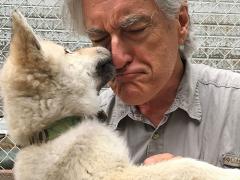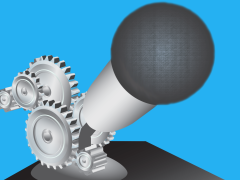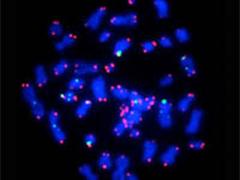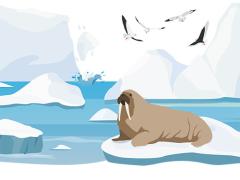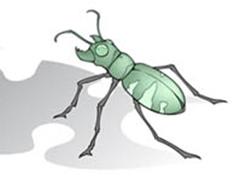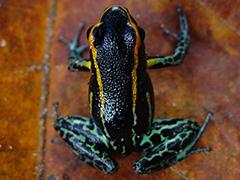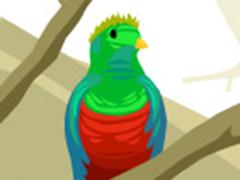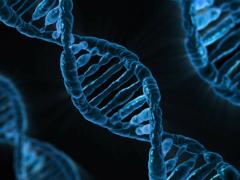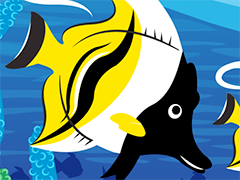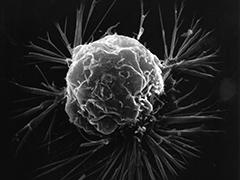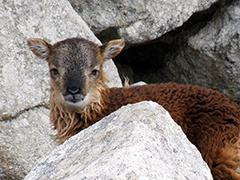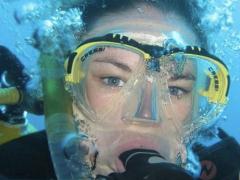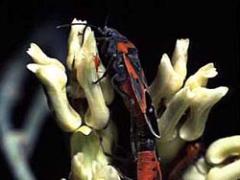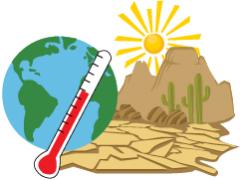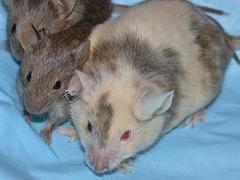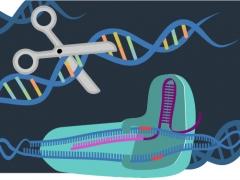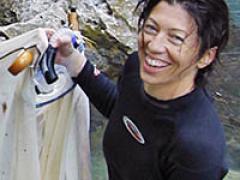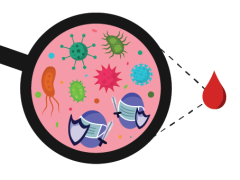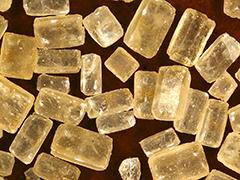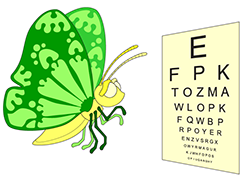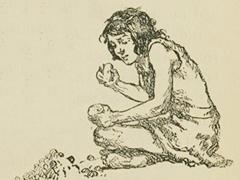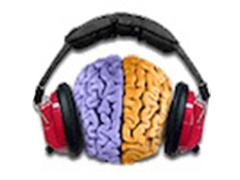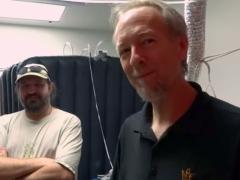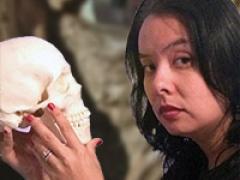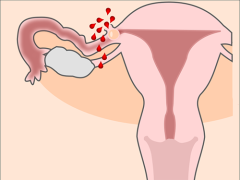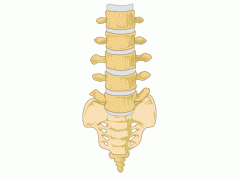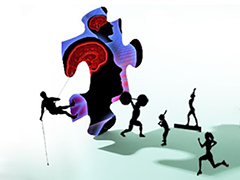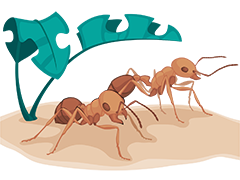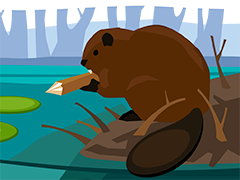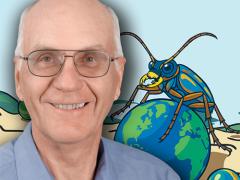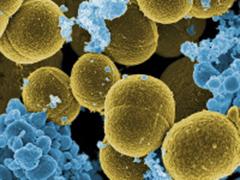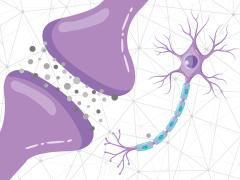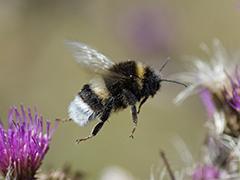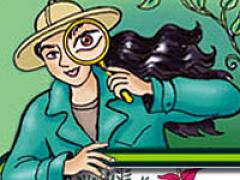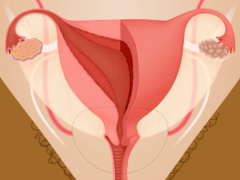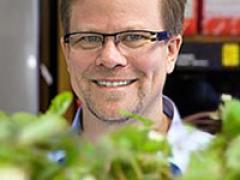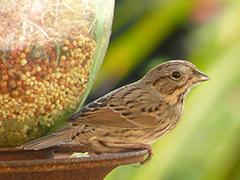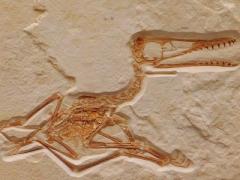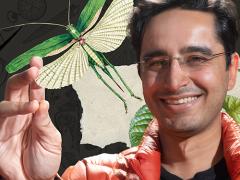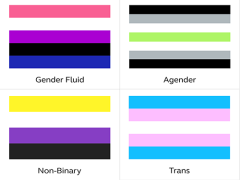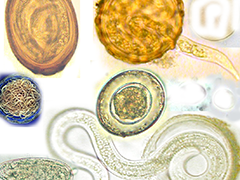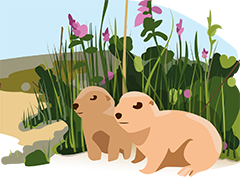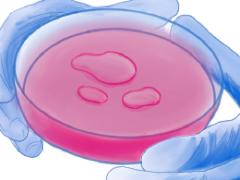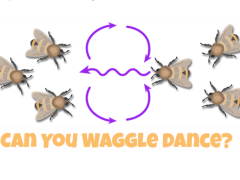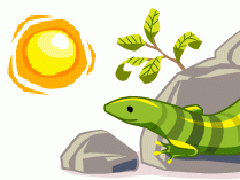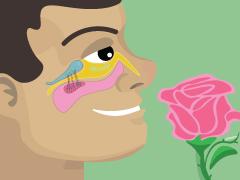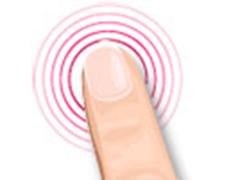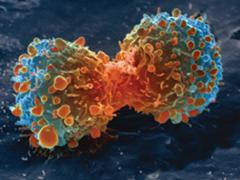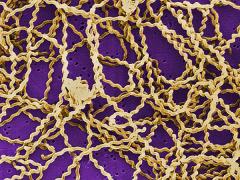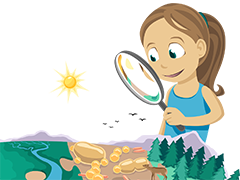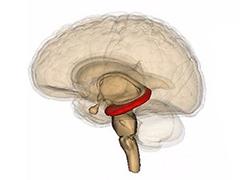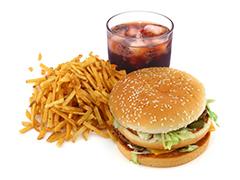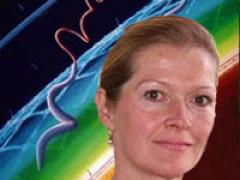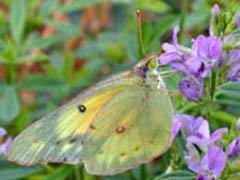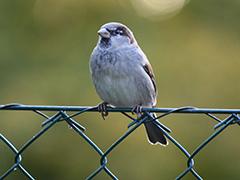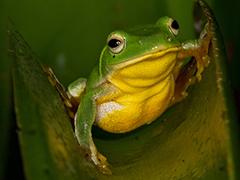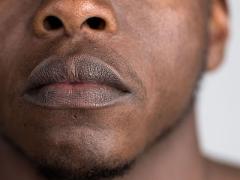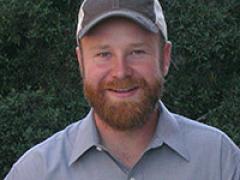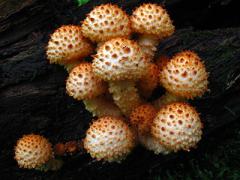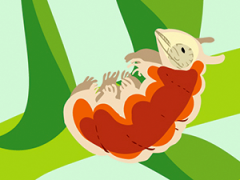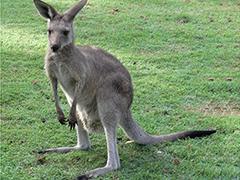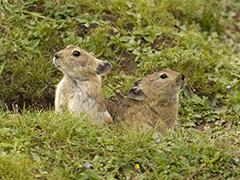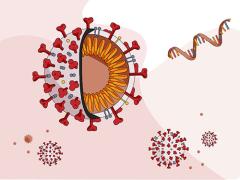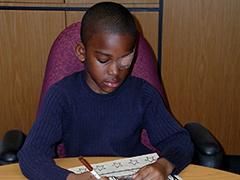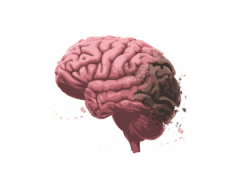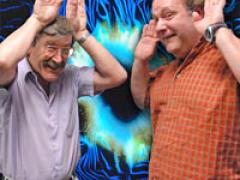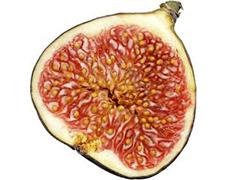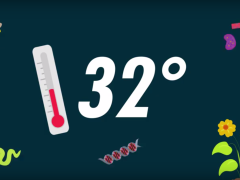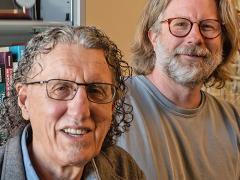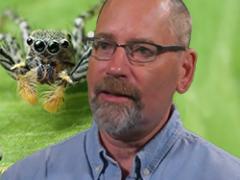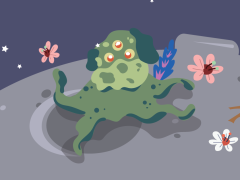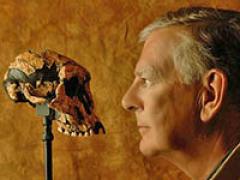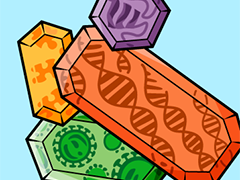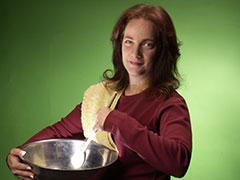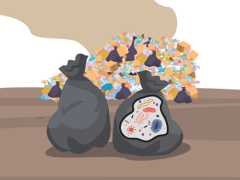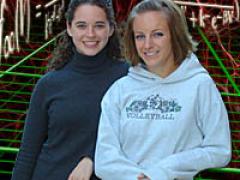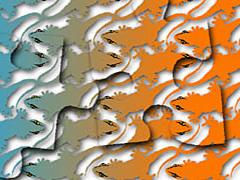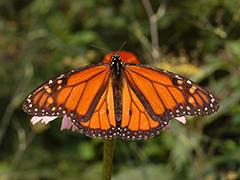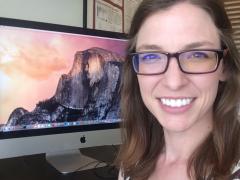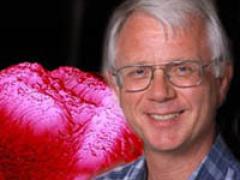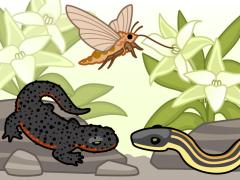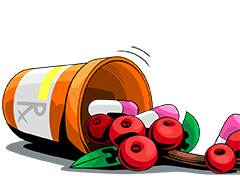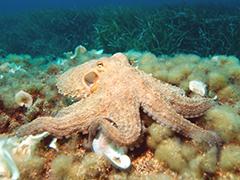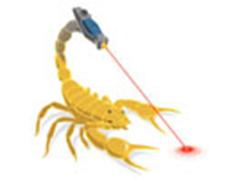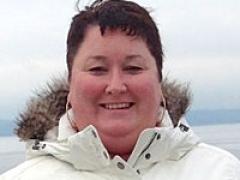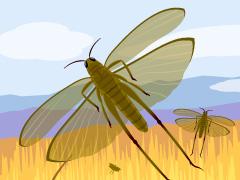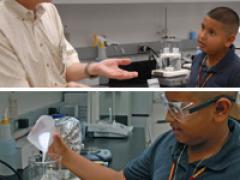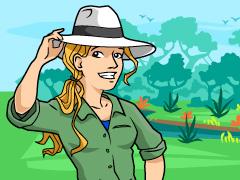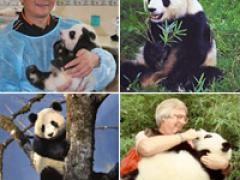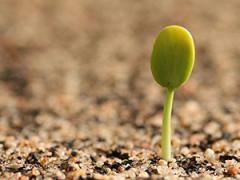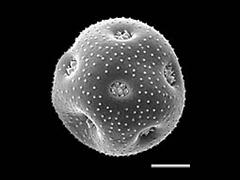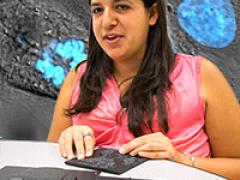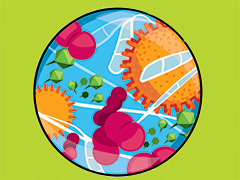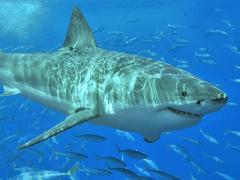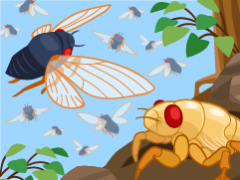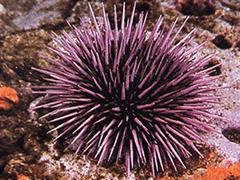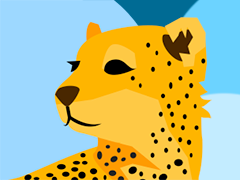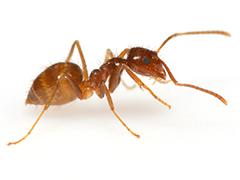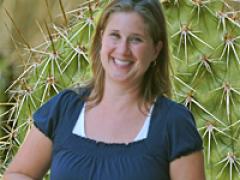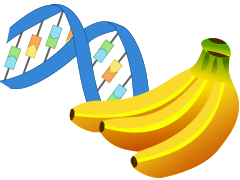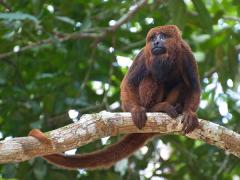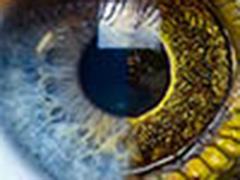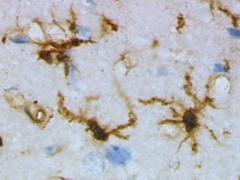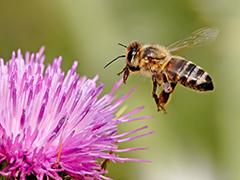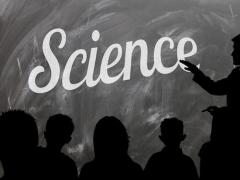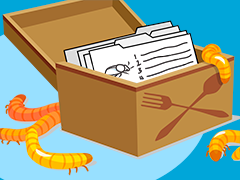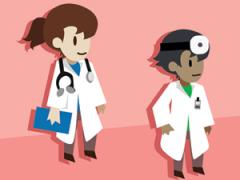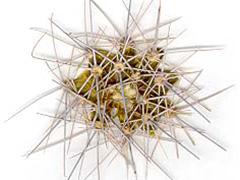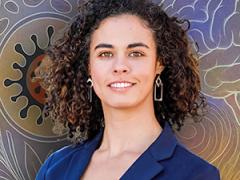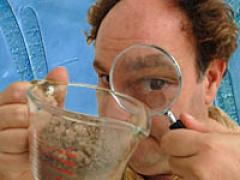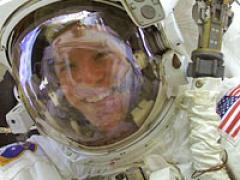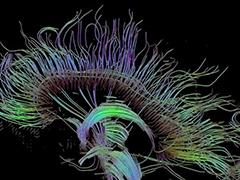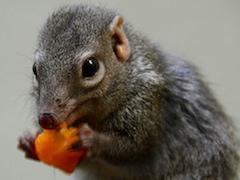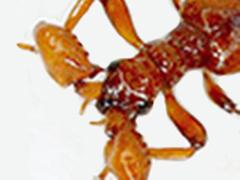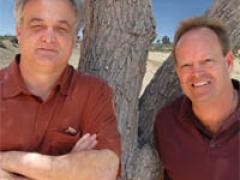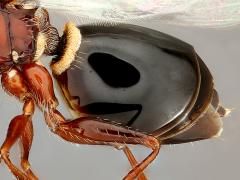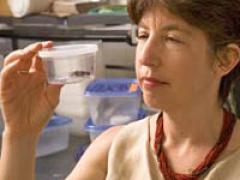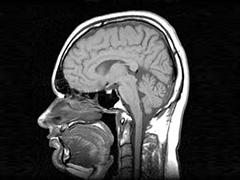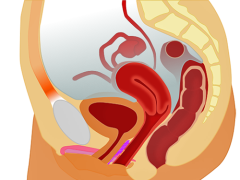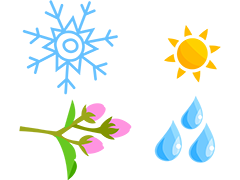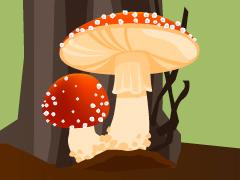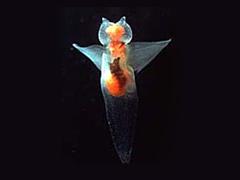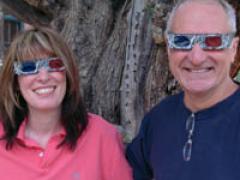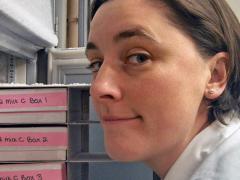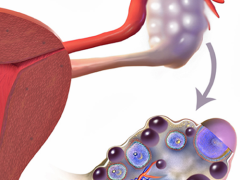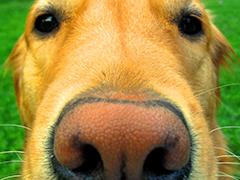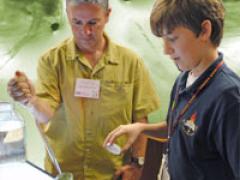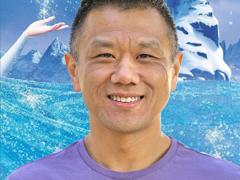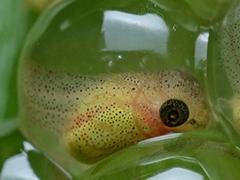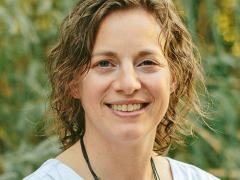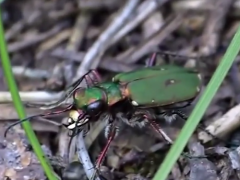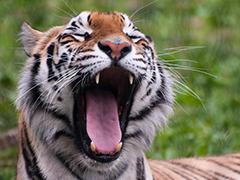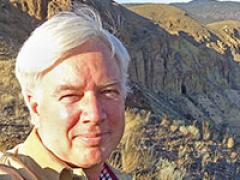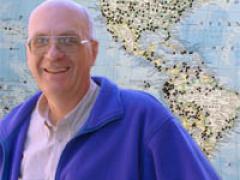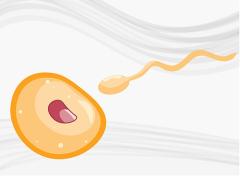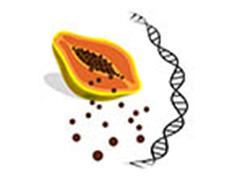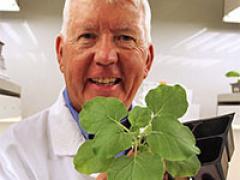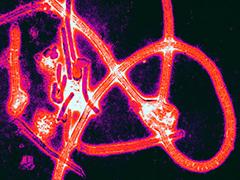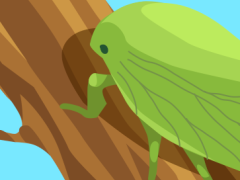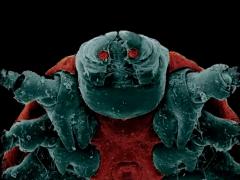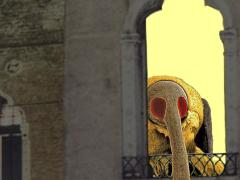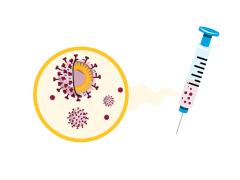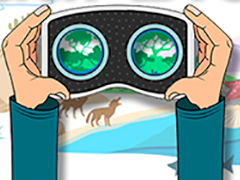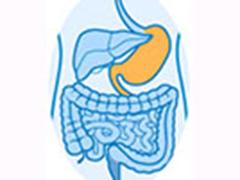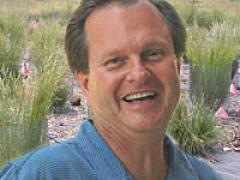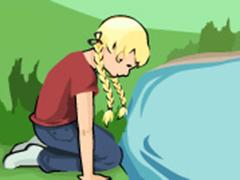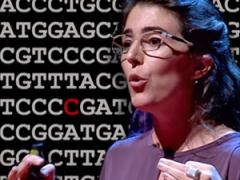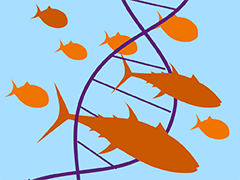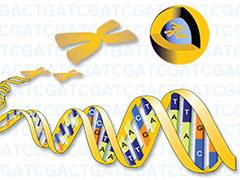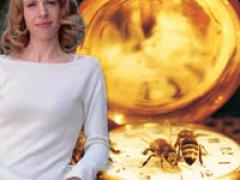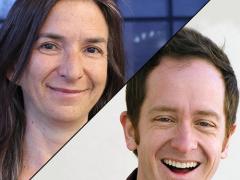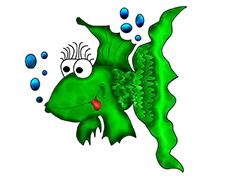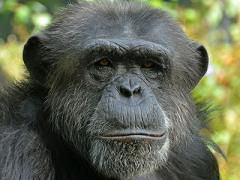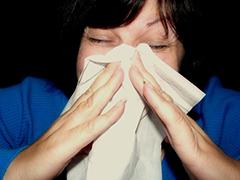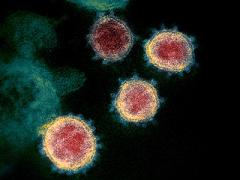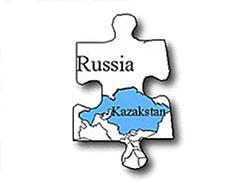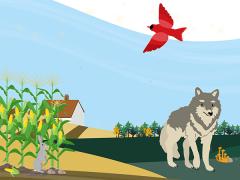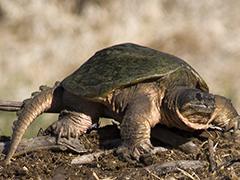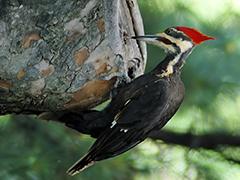Stories
Biology Stories
Explore the world of biology and meet some of our biologists. Here you can learn about the living world and find out what is so cool about biology that someone would do it for a living. Pick a story to read or listen to one of our podcast shows filled with guest scientists who share their experiences and passion for discovery.
Not everyone has been on a hike and very few have hiked with a park ranger. Dr. Biology hikes South Mountain Park with not one but two park rangers. Park Rangers Liz Smith and Justin Olson are our guides for the 2.5 mile trip up Holbert Trail. This episode…
Let’s take a ride. It is going to be a fast one, so be prepared. Where are we going? We are going to start at your head and end up at your toes. It may not seem like a long trip, but it is going to be fast. It may be the shortest and fastest trip of your life. Are you ready? Let’s begin.Also…
Dr. Biology takes a bite into the world of food science with scientist Christy Spackman from the School for the Future of Innovation in Society and the Herberger Institute for Design and the Arts. The two venture into the realms of taste, smell, and texture. There is talk of…
Dr. Biology travels to the Tres Rios wetlands, a place where all types of living things can be found. He talks with local biologists about many of the species and also gets a chance to sit down and talk with Quentin Wheeler who is starting a new Institute that will be exploring…
Are we robbing ourselves of our own natural treasures? A team of scientists is investigating how human-caused climate change is affecting U.S. National Parks.
When we think about using the natural power of the earth, like sun or wind, we don't usually think about how this might hurt animals. But researchers are finding that we can use sustainable energy while still taking care of our flying friends.
Imagine a day at work where your clients range from tiny reptiles to massive elephants, each with their own unique health needs. That's a regular day for our guest in today's episode, Dr. Gary West, the Senior Vice President of Animal Health and Living Collections at the Arizona…
Trap-jaw ants come with spring-loaded jaws that can snap shut faster than any other animal's. But they may also use their jaws to catapult themselves through the air.
Whoever came up with the saying “don’t judge a book by its cover” probably never met the Chinese Grouse (Tetrastes sewerzowi). For the Chinese Grouse, judging a mate by its cover is actually the way to go.
Families are important to many animals, but are they also important to organisms made of just one cell? For amoebas, the ability to recognize relatives can make a world of difference.
Two AI bots meet in a coffee shop. This might sound like the start of a joke, but is it a joke? Today artificial intelligence (AI) is a popular topic. With new tools popping up daily it appears we are at the beginning of a brave new world. Some say the world will be amazing and others have dark…
When you visit a pond or the beach, what kinds of living things do you see in the water? Depending on the environment, you might find fish, frogs, crabs, insects, seaweed, or lily pads. Don’t let your eyes fool you, though… there’s a hidden world in water full of creatures too small to be…
Reading a scientific article can seem like a difficult task. To help get you started, we first discuss what all goes into a scientific article. Then, when you're ready, click on Article Dissection to see how a scientific article can be broken down into parts that are a bit easier to…
As scientists study the amazing social network of ants they are discovering we could learn a lot from these tiny animals. Dr. Biology and co-host Jane Rector visit with Jennifer Fewell, a biologist who is exploring the world of social insects including ants.…
Wait - there's more! Dr. Biology and co-host Jane Rector continue their visit with Jennifer Fewell, a biologist who is exploring the world of social insects including ants. There is even some talk of how professional basketball teams could learn a thing or two…
There are so many types of ants that it's funny the animated movie about them centers on one type that doesn't exist: a male worker ant. In this story you can explore some of the types of ants you can find in the southwestern United States.
Plankton are ocean creatures so small we can't see them without a microscope, but just because they are small doesn't mean they don't play an important role in the ocean ecosystem.
Like humans, bats are mammals. They are warm-blooded, covered in hair, have live young, and nurse their young (called pups). Unlike humans, bats have wings, which allow them to fly.Also in: Nederlands | Français |…
Here is something special you can add to your trick-or-treating this year. Find out if there are vampire bats waiting to drink your blood - or if we really have a funny bone in our body? These are just a few of the things Dr. Biology and his guests Rebecca Fisher and …
Did you ever wonder what causes river rocks to be slippery? Can you believe it's the same thing that causes plaque on your teeth? Learn about this "biofilm," and how Valerie Stout is fighting it (in some cases) to improve medicine.
We can learn a lot about animals by watching their behavior, but what about by looking at their surroundings? See what scientists can learn about bats based on the type of environment in which they live.
Orchid bees come in an amazing array of shapes and colors. You could call them the jewels of the bee kingdom. Also in: Nederlands | Español | Deutsch
Bee Movies are not just for Hollywood. Dr. Biology catches up with bee movie maker and neurobiologist Brian Smith who uses film and video to unlock the mystery behind bees and how they sense and communicate with the environment. This movie director may not bee up for an Academy…
For more than twenty years, making bee movies has been a part of the research work of professor Brian Smith.
Are there really flesh-eating scarab beetles, or is it a movie myth? Dr. Biology and biologist Mary Liz Jameson talk about scarab beetles, dung, and even some insect recipes, minus the dung, for humans to try out for their next dinner or pot-luck.
If you had x-ray vision, where would you look first? Some of our biologists have looked inside of beetles to learn more about how they breathe and fly.
Being able to choose which people we interact with seems to affect how happy we are and how well we do our jobs. Is this true in other species? Learn how choosing a mate affects the success of zebra finches in making and raising young.Also in:…
A story of blood, love, and family… Learn about one of the biggest and fanciest blister beetles anywhere. This species goes by the scientific name of Lytta magister but has also been called the “master blister beetle,” most likely in honor of its large size.
These enormous insects depicted in bad B movies exist mostly in the realm of science fiction. However, insects of giant proportions really did exist 300 million years ago.Also in:
Biologist Bruce Hammock talks about life as a biologist, being a businessman and mountain climbing. How do these all fit together? Listen in as Dr. Biology learns how these pieces all work together in an interesting career.
On this podcast, we like to explore how science meets the public. In this episode, we examine the art of communication, with biologist, author, and filmmaker Randy Olson. Dr. Biology learns how Olson uses humor and creativity as powerful tools. Inspired by platforms like The…
The climate on our planet is changing, but what does this mean for living things, like plants and animals? Scientists investigated how birds respond to the changing climate.
Part of what makes science fun and challenging is solving puzzles and investigating mysteries. For this episode, Dr. Biology sits down with ecologist Charles Brown and the two talk about his 40-year journey of discovery and rediscovery. This is a curious story that involves an…
Your mom tells you to eat all your vegetables for a reason, because she wants you to grow big and strong. She doesn't just want your body to grow strong. She wants your brain to grow strong too.
Take a breath and breathe out. What you just exhaled is the subject of this podcast. It is a story of over 140 thousand molecules and what we are learning about them and what a single breath might tell us about our health. Dr. Biology catches up with bioanalytical chemist …
Pierre Deviche's love for the outdoors led him to doing field research on the timing of breeding in birds.
Can a transformed 4-acre former citrus orchard become a vibrant urban wildlife sanctuary? Dr. Biology is out of the studio to explore Julie Stromberg's remarkable riparian garden. Julie, a plant ecologist and emeritus professor at Arizona State University, shares her motivations…
Microbes are everywhere, but what are they? We get the inside story from microbiologist Valerie Stout about these tiny life forms including a slimy and gooey material many microbes make called biofilms. In fact, you have a daily encounter with biofilms and bacteria that can…
Building Your Own Ant Farm is a 2-part Ask A Biologist video with Dr. Biology and Rebecca Clark on how to build an ant farm with two recycled CD cases. Watch part two.
Building Your Own Ant Farm (Part 2 of 2). Ask A Biologist video with Dr. Biology and Rebecca Clark on how to build an ant farm with recycled CD cases. Watch part one.
Nine months – that’s about the amount of time that healthy babies develop before they are born. But what if that nine months is a bit more flexible, and can change in response to the environment?
There are many types of relationships that exist in the living world. This episode dives into one special relationship that an insect has with some tiny microbes. It is a life and death story that microbiologist John McCutcheon has been exploring. Dr. Biology gets the…
Cancer cells decide how to behave by “listening” to signals around them. Scientists recently studied these signals by watching cancer cells as the cells moved through their environment.
Have you ever wondered how complex science jargon is translated into a story that captivates and educates? We've got you covered! Dr. Biology chats with James Gorman, a veteran science reporter from the New York Times, we peel back the layers…
Podcasting is new to both Ask A Biologist and an exciting new science program called Science Studio. The host of this new show, Peggy Coulombe, talks with Dr. Biology about what it has been like to start podcasting.
Did you ever think the search for the “fountain of youth” would end up inside of our very own cells? There are some scientists that have found that parts of our cells might hold the answer to aging and diseases like cancer.
What happens when our brain fails us? As Dr. Biology, my work has never been involved with diseases that affect the mind, but I do have a personal experience with the shadowy realm of Alzheimer's and other dementias. My mother battled against this relentless adversary and I am not alone. …
David Pearson is a research professor in Arizona State University's School of Life Sciences. A speaker of five languages and capable of getting into trouble in maybe three or four other languages, he's traveled the world studying tiger beetles and recently published the book, A Field Guide to…
How careful are you with your words? Scientists are figuring out how to choose words more wisely to have a better chance to stop certain diseases.
Welcome to an exciting journey that takes you through the wild and fascinating world of zoos. Our guest for this episode is none other than Bert Castro, the President and Chief Exective Officer of the Arizona Center for Nature Conservation.…
If you spend some time hiking around the American Southwest, you might be lucky enough to spot a Gila monster. But you probably won't see one climbing a tree.
What is cloning and do we have clones living among us today? The answers might surprise you or maybe we should say ewe.
Imagine you want to pull a long cylinder-shaped piece of soil (called a core) out of the ground in your backyard. What kind of tools would you need? Find out how researchers collect cores in the Frozen Arctic.
Peruvian poison frogs mimic, or look like, other poison frogs that live in the same area. But they don't just look like one other species. Depending on the location, frogs of this species may mimic one of many other species of poison frog.
The career path for biologist Kevin McGraw was set by a chance sighting through a window of a Costa Rican coffee shop.
Our daily life depends on the ability to see, hear, feel, and smell at the same time, a skill that develops during childhood. In this article scientists studied how the brain develops the ability to combine sensory information.
Almost all of our cells contain identical copies of DNA. But wait...with the same instructions, shouldn't all cells look and function the same? Learn how our bodies use the same instructions to make all kinds of different cells.Also in:…
How do wild animals defend themselves against infections? Biologists studied a wild population of sheep to work out whether being tolerant of infections could be as good a strategy as killing infections.
Look closely at John Alcock's critter littered yard and you'll be bug-eyed. He decorates the front with cow patties, spends hours watching sleeping bees and occasionally wolfs down a cricket or mealworm to amuse or horrify his guests. "I'm just considered a mildly eccentric person," admits…
Climate is a hot topic in the news and on internet websites and blogs. But what exactly is climate? And how do we know it is changing?Also in: Español
Professor Ferran Garcia-Pichel sweats the small stuff. The really, really small stuff to be exact. The easygoing Arizona State University-based microbiologist loves to look beyond the surface to explain what is happening in the tiny world of microbes.Also in: …
They might be colorful. They might be cute to some people. But don’t let that fool you. These bright-colored frogs are poisonous. Dr. Biology talks with biologist Molly Cummings to learn about her work with some frogs that advertise to predators to stay away and other frogs that…
What is gene editing? And how does the one of the most-used gene editing tools, called CRISPR, work? Also in: Español
The race is on. It is one where biologists and citizen scientists are working as quickly as possible to find and identify all the species on Earth before some go extinct. It might not seem like an important race, but we learn from entomologist Kelly Miller that not knowing what…
An imaginary conversation between two great thinkers, Charles Darwin and Gregor Mendel. While the monk, Mendel, had read Darwin’s publications - Mendel's work only came to be known later. We can only imagine what the two might have talked about.
If aliens were to contact us, what would you say? How would you say it? These are just a few of the questions that Dr. Biology talks about with guest Lucy Hawking. The two have fun with these ideas and more as part of the…
Signals from the brain have been used to help scientists understand how people see, move, and make decisions. In this experiment scientists tested whether they could also use these signals to record a person's emotional state. Would they be able to detect fear, surprise, sadness, and more by…
Deserts can be a bit of a mystery--we picture them as hot, barren places, but that's not always true. Deserts are found in both the hottest and coldest places on Earth, and some of them have lots of plant and animal life, you just need to know where to look to find it.Also in:…
The digger bee is just one of about a thousand species of native bees in Arizona, many of which have females that burrow into the ground with their jaws and legs when constructing a nest.
Also in: Español
Diabetes affects nearly one tenth of the population in the United States, but we still have a lot to learn about the disease. Researchers are finding that a lack of specific proteins might reduce our abilities to absorb sugar, making it a key player in the diabetes problem.
As you watch a butterfly navigate the flowers in your back yard, or a pesky fly avoid your flyswatter, keep in mind their vision is quite different than yours and mine.
DNA is the ultimate how-to guide used by all living things. It packages all the instructions for building maintaining all our life forms and it easily fits inside a cell.Also in: Español
How much has the human brain changed from the brains of our ancient ancestors? Evolutionary psychologists think that the modern human brain has not changed much over the past 50,000 years, but other scientists disagree.
You might think of your parents as being old, or being fairly young; maybe they are many years apart in age. Did you know that parental age may affect the likelihood that a child will develop a brain disorder?
Depression affects millions of people worldwide yet anti-depressive medications only work on a handful of people who suffer from the disorder. By looking at depression through the lens of evolution, scientists may learn more about depression and how it can be treated.
Everyone gets stressed. Many of us find that listening to our favorite song usually brightens up our mood. Scientists wanted to study whether music can actually affect stress levels in the body.
Scientists are finding out that even though dogs look very different on the outside, what causes them to look that way is much similar than we thought.
Hospitals try to stay clean and reduce the spread of germs within their walls, but what happens when medicines and bacteria from the hospitals reach bacteria in the sewer?
Travel with Dr. Biology as he heads to Washington D.C. to interview three people who are all involved with science even though two of them are not scientists. Interviews include Cheryl Zook (independent film maker), Elizabeth Pennisi (science writer), and…
Dr. Biology drops in on biologist Michael Angelletta and the researchers in his labortory. Besides getting a fun tour of the place, he learns how they study animals and their methods of heating and cooling their bodies.
Giant beetles, flying treadmills, oxygen and prehistoric insects are just a few of the things that Dr. Biology learns about when visiting with biologist Jon Harrison.
Dr. Biology interviews research scientist Kate Ihle at Barro Colorado Island in Panama. BCI is part of the Smithsonian Tropical Research Institute.
Television portrays the lives and work of forensic artists, but what is it like to really be a forensic artist? Are the tools you see on the big and little screen really used by the people who recreate the face of someone when there might only be a skull or parts of a scull to use as a starting…
We celebrate Earth Day every year, but in reality every day is Earth day. For our part here are some fun activities and things you can do to help the Earth.
Could it be your stomach and not your brain that is keeping you up at night? Scientists are learning that for some species, the effects of sleep loss may depend on how much fat an animal stores.
Dr. Biology sits down with biologist E. O. Wilson to talk about science, his writing including his book, Superorganism, and future new novel, as well as his art. Along the way they discuss the Encyclopedia of Life web project and a very cool outdoor activity called a "Bioblitz…
Dr. Biology continues his conversation with biologist Ed Wilson. Just what does it take to be a great scientist? What would he do to encourage students to become scientists? These are just a few of the things we learn in this show as well as what Ed Wilson would do or be if he…
Not all exercise is the same, but all exercise can help you grow strong and keep you healthy. Exercise can also help you with your homework and that science project due at the end of the year.
Imagine being the size of an ant. Be careful - a face-to-face encounter with an ant would be scary and potentially life-threatening! But, if you avoided being eaten, you could learn a lot about ant anatomy from a close-up view. Ants have many body parts that are normally hard to see without a…
Lakes, ponds, streams, and rivers are all sources of freshwater. But there is a lot less freshwater on earth than you might think. Fall into freshwater with us to learn some new things about this near-saltless water biome.Also in: Español |…
Almost everyone has wished at one time or another to be able to fly like a bird. Just the thought of soaring above your city or town without any mechanical device gives us a reason to envy these feathered animals. Also in: Français |…
When it comes to digesting your food, you may think that your body does all of the work by itself. In reality, your gut is full of helpful bacteria that help break down your food and keep you healthy.
Could fire be important for life on Earth? Would Earth be the same without fire? These are just a few of the many questions we have for fire researcher Stephen Pyne about fire and its role with life. Did we also mention his battle with a dragon? If you have a burning desire to…
Fish use their two fins and a tail to glide through the ocean, but some fish like the mudskipper use their fins for flopping across land too. Scientists are investigating how fish evolved limbs to walk on dry land.
Some ocean dwelling species are starting to go extinct. Scientists are researching whether how many species there are in an ocean environment has anything to do with this fishy vanishing act.
It's pretty easy for people to find their way around, but is it easy for insects? Researchers are finding that even without maps and navigation devices, bumblebees can usually find the best route to take when collecting pollen.
Dr. Biology along with a group of curious high school students learn why Detective Flora Delaterre is investigating plants and how they can be the perfect medicine for what makes you sick.
Birds in the city seem to have endless options of places to eat. How do they choose, and where do they prefer to eat most?
Most humans can determine whether or not they know someone by looking at her or his face. Scientists have discovered that humans are not the only animal with this ability. The cichlid fish can also use facial differences to tell each other apart.
Embark on a journey through the intricate dance of nature and innovation as we welcome Saad Bhamla, a scientist at the forefront of biological engineering. Your curiosity will be rewarded as you and Dr. Biology learn about some of the…
When you think of the Arctic, you might picture mostly empty ice. But the Arctic ecosystem is home to many organisms, from microscopic bacteria to large animals like whales and polar bears. Much of this life in the Arctic depends on tiny organisms called plankton which make up the base of the…
Time flies when you're having fun, especially when playing video games. Researchers examine how it is that gamers can lose track of time playing their favorite video games.
We are often taught that germs are bad, but what if exposure to germs or other microorganisms has long-term positive effects? Recent studies show that certain microbes in our environment might actually offer a protective effect against Alzheimer’s Disease.
Some people gaze out at the landscape and see plants. Associate Professor Kathleen Pigg of Arizona State University sees the latest chapter in a long story.
Is there such a thing as too much time on the Internet? Scientists are studying the affects of Internet use and how it can be addictive for some people.
This could bee - yes, bee - a key to our sweet tooth and possibly a way to learn more about diabetes.
In a world where animals, humans, and the environment are forever linked, the health of wildlife is a cornerstone for the well-being of all. In this episode, we embark on an extraordinary journey with Sara Wyckoff, a wildlife veterinarian from the Texas Parks and Wildlife…
Hacking is a word that is often tied to something bad. However, there are times when hacking can be for something good. Think of it as a tool that can be put to use for good or bad. We also think of hacking as something only done with computers, but can we hack other things? Dr. Biology has the…
Have you wondered if it was possible to be a cyborg? Half man and half machine? Scientists are conducting experiments to see how brains control robotic limbs.
While cannibalism is fairly common among insects and crustaceans, most backboned animals avoid feeding on their own kind.
McGaughey (pronounced McGoy) is a researcher at Arizona State University who studies reproduction of mammals. He is a consultant at a hospital, where he is part of a team that implants fertilized eggs into the uterus of women who have not been able to conceive a baby by other methods.
Even a toddler can recognize his mother's voice on the phone, but what parts of the brain help match voices and faces in your brain?
Temperature is important to all organisms, including you. Professor Angilletta studies the thermal biology of animals, which means that he investigates how different temperatures affect them.
Every living thing must be able to reproduce and make offspring. Most of us are familiar with how humans and mammals make babies, but do all creatures reproduce in the same way? Do insects, like the beetle, give birth to little insects? Also in:…
Whether a friend whispers in your ear, or you hear a jet flying high in the sky, sound is all around you. But how does a tiny sound wave change from waves in the air to sounds or sentences that we can understand? Also in: Français |…
Cancer is a disease that affects a lot of people. But there are still many things that scientists don’t understand about it. The goal of this experiment was to see how stem cells are involved with the growth and spread of cancer cells.
Searching for things on the Internet can be like hunting for a needle in a large haystack. Just how large is the Internet?
When was the last time you folded a piece of paper to make a fun shape? Maybe you made a paper plane or tried origami to make a swan. Believe it or not, the building blocks inside your body also need to fold into the right shapes to work properly. In this activity, you can build your…
West Nile virus is spread by mosquitoes and becomes more common in humans during the summer months. Is there a connection between the feeding habits of mosquitoes and the spread of the virus to humans?
Do you notice when your brother or sister take stuff from your room? Even if they put it back, you can still see those small differences. Scientists are studying what part of your brain is responsible for seeing those kind of changes.
Have you ever wondered what makes one animal different from another? Scientists conducted an experiment and found that food is one of the reasons chimpanzees and humans are so different.
Embark on a journey through the buzzing world of grasshoppers and locusts with Dr. Biology. In this episode, biologists Rick Overson and Mira Word Ries, from the Global Locust Initiative at Arizona State University dig into the world of these insects. The…
The past can be hard to remember, so how can we go about studying it? Indiana Jane takes us on a tour of humans from the past, ancient microbes, and the bioarchaeologists that study them both.Also in: Español
You hear that space is the final frontier, but could we have another frontier right here on Earth? The microscopic world offers a limitless opportunity to explore amazing places and life forms. You just need the right tool for the trip – a microscope. Guests Angela Goodacre and…
If the world of fashion were to choose the most fabulously colored animals they would likely decide upon butterflies and birds. These animal fashion statements are well known to most people, but what is less clear is how and why these bright colors have evolved in the animal world.
These fluttering icons of North America are a favorite of many people across the world, but they may be having some population problems. Don’t worry though, there are ways you can help. Conservation specialist Gail Morris talks with our student guest host Kayna Lantz…
City life can be stressfull for people, but what about for other animals? Learn what scientists found out about the effects of city life on the stress and health levels of birds.
The story of a frog's life in the rainforest can be one filled with danger. Some frogs are brightly colored and other blend into the forest. Do bright colors work better than dull colors for keeping a frog from being eaten?
Could these shy cats be living in Southern Arizona? Dr. Biology learns about these amazing animals from wildlife biologist Emil McCain. The two talk about the Borderlands Jaguar Detection Project and how two long-time hunters became the biggest fans and supporters for Jaguar…
Mud may look boring, but it has a lot more going than you might think. Some clays can kill bacteria, but exactly why they could wasn't clear. Scientists tested whether bacterial killing ability of some clays is due to the ions attached to them.
Tardigrades are some of the toughest animals on earth. They can survive freezing, drying up, radiation, and space, all while being smaller than the tip of a pencil.
Have you ever wondered how different animals are related? Marsupials like kangaroos live in Australia, but scientists think they may have traveled there from as far away as South America.
Plateau Pikas are one of the 30 species of pika worldwide. All 30 species of pika are similar in appearance. They look like round balls of fluff about 6 inches long with prominent round ears and a small tail hidden under their fur.
Wheels are common in our lives but rare in nature. A larval tiger beetle is one of the few animals in the world that turns into its own wheel to help it move along sandy beaches.
Mom might have told you that video games would rot your brain, but scientists are finding ways to use video games to make your brain stronger. This is especially true when it comes to treating vision disorders like a "lazy eye."
What happens when you mix part Robinson Crusoe and Swiss Family Robinson with biology? You get an adventure that has filled many lifetimes (bird lifetimes). Dr. Biology had the opportunity to sit down with Peter and Rosemary Grant to talk about the more than 30 years…
What is life and how do biologists decide if something is living or non-living? Dr. Biology visits with physicist Paul Davies and microbiologist Ferran Garcia-Pichel. They talk about life, extreme life forms (extremophiles), and the possibility of life on other…
Fruit may just be something that you like to eat. For the fig wasp, fig fruit is more than just a food--it's where life begins and ends.
Have you ever wondered how animals and plants get their names? People give them names, lots of different names! That was how it used to be before Carl Linnaeus created the world of taxonomy.
Even though we live in a modern world how we act and what we do many times is controlled by our Stone Age brain. This impacts our diet, friendships, love and more. Dr. Biology sits down with authors Doug Kenrick and David Lundberg-Kenrick to get the inside story…
Life on other planets. Is it possible? Are there going to be little green people, or a friendly Martian? This PLoS article is the story about how scientists are looking for life beyond our planet.
Looking into the past can be strange and exciting. To understand a past that goes back millions of years, we often depend on the stories told by fossils. Dr. Biology talks with anthropologist Donald Johanson about Lucy, a fossil of human ancestors that has taught us some…
Step-by-step tutorial for building your own Pocket Seed Viewer. You can use it to test the effects of light, dark, temperature and gravity on seed germination and plant growth.
Much like a mechanical watch, living things only work when all the gears work together. Some of the tiniest of gears are proteins. Learning about the shape and size of these proteins is the job of X-ray crystallography.
We hear a lot about DNA, but not as much about RNA. It is true that DNA is the encyclopedia of life or the ultimate instruction manual for living things. But what good is a book if it is not read or an instruction manual that is not used? This is where RNA comes into the story of life. It is the…
Mushrooms can be mysterious. You might know that some are poisonous while others can be tasty, but did you know that a few kinds can be used as medicine? Learn more about the new ways scientists are using mushrooms to treat cancer.
By the time the first endangered species list was made, many species had already gone extinct. Some species, like whooping cranes, were almost extinct at that time. But the US government did not begin to protect animals as endangered species until they were put on the official…
There are lots of sites out there full of molecular techniques and protocols, but very little information (either online or in readable hardcopy form) that explain how and why these techniques work.
Most of us wish we could predict the future. We want to know everything from who will win the big football game to whether or not our favorite superhero will defeat the super villain. Biologists want to know the future too.
Transforming robots are favorites of television and movies, but nature has some of the best transformers. Animals that can change in ways that almost seem unbelievable. Also in: Español
Three inquisitive young co-hosts, Stephanie Galindo, Anthony Delgado and Raenesha Willis visit with biologist and microscopist Page Baluch. Together with Dr. Biology they explore the tiny world of inner space and learn that…
Biologists at Arizona State University hope that by learning more about animal behavior, they will also be able to understand why people act the way they do. Also in: Español
They say mother knows best; this may be especially true when it comes to moms sharing protective immune molecules with their babies.
Africanized "killer" bees have fallen prey to a deadly predator of their own- parasitic mites whose infestation has dropped their wild colony numbers by as much as 70 percent statewide.
Does being born a son or a daughter mean your reproductive success might be different? In some societies, it does.
Dive into the behavior and physiology of two different primate species that are helping biologists explore the science of stress, aging, and immunity. Dr. Biology sits down with scientist Noah Snyder-Mackler from Arizona…
In the tiny world of DNA, we might call genomes monsters. These huge sets of information include all the codes for all the genes present in an organism. From genomes, we can learn about the traits, diseases, and evolution of a species, and that’s just a start. What might such a monster set of…
Magic might be real, at least in the brain, for some people. Scientists are finding that magicians' brains are wired differently than those of the average person.
Very strange things have been taking place lately. Dr. Biology and his team need your help to solve the mystery and piece together what's been happening in the lab.
The tiny world of nanobiology is the topic of this show. Dr. Biology sits down with nanobiologist and physicist Stuart Lindsay to learn about nanobiology and some of the cool and strange things that happen when things are so small.
When humans change an environment, it means we can lose species. And losing species is bad news for humans, animals, and the environment.
Colors are not just for humans. In fact, Mother Nature has been playing with color and love for very long time. What are these colors of love? Are they all the brightest and boldest colors, or is there more to the story?
Medicinal plants come in all shapes and sizes. Probably some of the weeds growing in your yard, fields, or even cracks in your sidewalk are medicinal. Who knew there was a different kind of drugstore—a vital and ancient one—all around us? Also in: …
Sea life might not appear to be restricted to living in certain areas. But often they can only live in specific areas, even in the deepest parts of the ocean.
Can storytelling transform biology research? Join us for an engaging conversation with Kayla Burgher and Risa Schnebly, two visionary PhD students at Arizona State University.…
Scorpions are often misunderstood. Many people say that scorpions are so aggressive they will sting themselves to death, but this is not a natural behavior of scorpions in the wild. Also in: Français |…
Have you ever wished for a place on the Web where you could find quality science content that you can count on and trust? Your wish has been granted. Learn about the National Science Digital Library and all the projects and resources created just for science, technology, engineering and math. It…
Did you know the westerly winds in the Southern Ocean have been helping to keep our planet livable? Yes, they have been responsible for soaking up half of the human-made carbon dioxide (CO2) along with a whole lot of excess heat. Dr. Biology has the opportunity to talk with geoscientist …
Arianne Cease isn't just any locust biologist. She's also a sustainability scientist, as she's bringing together all kinds of researchers to work on reducing the number of locust swarms, which affect 1 in 10 people across the globe.
Around 4,000 years ago, on the wind-swept island of St. Kilda, Scotland, people started creating a food storage of sorts. They moved a population of sheep to the island, likely as a backup food resource for when times were tough. Little did they know that their actions would affect 21st-century…
Tuberculosis (TB) can be a lethal infection that affects your lungs and can make breathing difficult. Here, scientists investigated how a new TB drug, called bedaquiline (BDQ), works in the body, and which combination of medications helps BDQ work better.
A transplant is what happens when doctors take a body part from one person and give it to another person, kind of like Frankenstein except not so scary-looking. Scientists are hard at work on some of the most difficult parts to transplant like hands and faces.
Ouch! You just got a paper cut on your finger. What happens now? Besides the sting you are feeling from the cut, there are germs on that paper that are preparing to invade your body. For your immune system, this means war.Also in: Türk
There is more to our memory than you might think. In fact, we have three types of memory. Just how these memory systems work, and work together is the subject of this episode. We also learn that there are sometimes errors in our memory. Take a few minutes to learn how we remember things and even…
When a tumor grows in a human body, you'd think that the body would fight it every way possible. But our bodies build vessels that deliver blood to tumors, helping them to grow. Scientists are trying to figure out why this happens so they can stop our bodies from feeding tumors.
For biologist Kate Ihle the rainforest holds the secret of her favorite insect. Wearing their their irredesent greens and blues, orchid bees are slowing sharing their story of life in the jungle. Also in: Nederlands | Español
Have you ever wondered what it would be like to hold a baby Giant Panda in your lap? Listen in while Dr. Biology talks with two scientists who have gotten up close and personal with Pandas. Andrew Smith is a returning guest and WEI Fuwen is a visiting scientist…
Being a parent is hard work. Though a snake might not seem comforting to you, pythons are actually very dedicated moms that take good care of their kids.Also in: Español
You may know that plants need air, water, and sunlight to survive. But they also need a special molecule called phosphate. Learn more about phosphate, plants, and why genetic modification may be able to fix some of our plant problems.Also in: Español
Most might be surprised that pollen is being used to catch thieves, illegal drug dealers, murders, terrorists, and even catching those who commit less visible crimes such as making and selling fake prescription drugs.Also in: Türk |…
Most people believed that Neanderthals, a species related to humans, were hunters that only ate meat. By taking a look at the Neanderthal’s fossilized poop, scientists discovered that there was more to their diet than just meat.
If you think of the instruments used to study and explore the world of biology it is clear that most are visual. So what if you cannot see? How would you understand the structure of – say a cell? Dr. Biology discusses a new tool for learning about biology with newly graduated…
You know you're sick, but what might you have? Is it bacteria, fungi, or viruses that are causing your illness? Learn about the differences between these pathogens and about how certain medicines can treat some, but not others.Also in: Español…
According to an old German proverb the animal that is the subject of this show was made by the devil. Dr. Biology gets a lesson about this devilish study subject from biologist Raghavendra Gadagkar. They talk about what he has learned from years of observing these misunderstood…
Are we armed with all the information to fight the worst diseases, even the ones that we’ve just discovered? Scientists wanted to create a list to identify the worst diseases to gain more information and be ready to help treat these diseases.
There are different ecosystems all around the world. All of these ecosystems are supported by the animals, plants, and other things living there. Researchers are learning that even the very rare species are important for an ecosystem to survive.
Remember your last paper cut, or the bad cold that had you coughing and blowing your nose? It was your immune system that was busy trying to make you better by battling the bacteria or virus that was attacking your body. How your immune system works is the discussion Dr. Biology has with…
Mutant robots with six arms and a mind of their own are stuff of science ficiton, right? Scientists are challenging that idea by creating robo-mutants in the lab and seeing how they evolve.
Scientists study the science of basketball teamwork and how different networks can make the difference between winning and losing.
What is a media artist doing developing games based on large science data sets? It turns out he is looking into how the planet ticks and also what David McConville calls global weirding. Listen as Dr. Biology learns how a media artist makes his home in the world of science,…
No, urchins are not indigenous to the desert. The usual home for Strongylocentrotus purpuratus is the ocean's rocky floor for grazing along the intertidal and subtidal areas. Also in: Français |…
Natural history museums may not come to life as they do in a Hollywood movie, but they do have some amazing stories. They also have all kinds of cool stuff that many of us never get to see. Paleontologist Richard Fortey talks about the life and some of the treasures hidden…
Ants are everywhere - they thrive in forests, fields, deserts, and cities all over earth. But what is the secret behind their success? Like humans, ants are social. They live and work together in highly organized societies called colonies.Also in: Español…
Robert Page's journey is as captivating as the creatures he studies. From his early fascination with entomology to his experiences in the Vietnam War and his parallel passion for photography, his journey is a rich tapestry of experiences. We chat about the contributions he…
Did you ever wonder why you see the colors you do or if other animals see the same colors that you see? We see light that bounces off of things around us. When the light enters our eyes, special cells tell our brains about the light. Also in: Français…
Living things need to be able to sense the world around them to avoid danger, find food, find mates, and for other important activities. Learn about the five senses used by many animals to sense the environment.Also in: Français
Many animals, including humans, build homes to live in. But when you have a home, you often need to work hard to defend it. In this article scientists discovered a peaceful defense mechanism that giant honeybees use to fend off predators and protect their homes.
Food fit for a king or maybe a local pot-luck dinner. These six-legged recipes will be sure to have everyone talking. In some cases, you might end up the buzz of the meal.
Dead men tell no tales, but their bones can. It just takes a particular kind of scientist to read the clues that tell the story. Dr. Biology sits down with guest Tony Falsetti, a forensic anthropologist who knows his way around a skeleton. They talk about the…
No, that is not a typo in the episode title. My guests today are collaborating on the study of animal movement, including humans. Both researchers use tools to document and analyze movement in animals. One tool is a symbolic language that has been in use since 1928 and the other is a new…
Could more sleep make fewer bullies? Scientists have learned that there may be a link between sleep, technology, and bullying behavior.
Tucked away inside steel-gray cabinets in the Life Sciences Building is a different kind of library known as the ASU herbarium. The stacks upon stacks of color-coded folders contain more than 210,000 plant specimens -- a kind of botanical history of Arizona and the world.
If it weren't for plants, most of the other organisms on this planet wouldn't survive. Most plants can use energy from the sun to make their own food. Let's take a closer look at the complex process of photosynthesis that gives them this special ability.Also in: …
Why do peanuts, pollen, or pet dander make some of us sneeze or swell up—but not others? In this episode, Dr. Biology talks with immunologist Esther Borges Florsheim from Arizona State University to explore how allergies start, why they’re becoming more common, and what’s really…
What could possibly be the difference between a cup of dirt and a cup of soil? Dr. Biology talks with microbiologist Ferran Garcia-Pichel about why he avoids the dirty word and prefers to say soil. Could it be there is more in a cup of dirt - excuse me a cup of soil than meets…
The life and work of Gregor Mendel has some surprising pieces. Known as the father of genetics, his work was mostly unnoticed for 30 years after he published his famous paper. It is also possible this famous scientist suffered from test anxiety.Also in:…
Little water, sweaty, hot summer days and frigid winter nights make the desert an uninviting place for most animals and plants. But hiding just below the surface, the desert is alive with microbes—tiny, living things too small to see without magnification.Also in:…
Extreme environments can be found on Earth, in space, and in the depths of the ocean. Dr. Biology and physiologist, astronaut, and mountain climber Scott Parazynski sit down and talk about what life is like to explore these environments. So hold on to your seat as we blast off…
The human brain works quickly and handles difficult tasks. Is it just the size of our brains that allows us to do these things? As it turns out, it may also have a lot to do with how well our brain cells can send multiple messages to other cells.
As most spies know, the best way to infiltrate a group is to look and act like the members of that group. But what does it take to be a spy among ants? One beetle may have figured out the ultimate ant imitation strategy.
Watching the news is a daily part of life for some people. What effect does that action have on the rest of your life? Scientists studied whether news reports can influence what you search for or communicate through your network when online.
It's a mystery, at least until you try to guess what animal children book author Conrad Storad is describing at the beginning of this episode. Joining Conrad is physiologist Michael Quinlan. Together they give us all the gory details behind this desert dwelling…
Love them or hate them, something is going on with male crickets on the island of Kauai. Once evenings filled with a chorus of these tiny singers has become strangely silent. Dr. Biology talks with biologist Marlene Zuk about how things are changing fast – maybe the fastest…
Many people know that the brain is important. But what does it really do, and who has a brain? In this article, scientists investigated what students think about these questions to try to understand how much they know about the brain.
Melissa Wilson never expected that her love for both math and biology would lead her to studying genetics and sex chromosomes. But the newest surprise in her work comes from finding out about some very colorful monsters.
During a plague year, locusts can swarm over 20 percent of the world’s landmass, affecting one out of every 10 people on the planet. Sounds bad – right? Enter biologist Arianne Cease who has been studying why these insects swarm and how to control them. Dr. Biology learns about…
You might think that most places on Earth experience the changing of seasons because of the distance from the Sun. But, surprise, that's not the cause. Come and learn some new information to lean on about the tilt of the Earth.
Humans are constantly changing the world. This can be in good ways, like some conservation efforts, but sometimes it is also in bad ways, like with pollution. Learn the ways in which we can help the world around us by understanding how we affect nature.Also in:…
In many fairy tales and folktales, the temperate forest is a place for discovery, adventure, and maybe a little magic. What makes this biome so special in our minds? Maybe it's the animals, the quiet that can be found there, or the way the leaves change color with the seasons.Also in:…
"Your home has termites" – is not something anyone wants to hear. But these insects are really important for our survival. Dr. Biology learns about these insects from entomologist, Barbara Thorn. It turns out that these critters are like tiny 'green machines' and one of the…
A tiny creature that flies and swims at the same time caught the attention of Arizona State University Professor Richard Satterlie a few years ago.
Have you ever wondered how evolution operates at a cellular level? Dr. Biology has a conversation with evolutionary biologist William Ratcliff in an episode that investigates the process of how single cell mutations can make the leap to coordinated groups of cells and ultimately…
Humans and insects have more in common than you might think. We share a broad range of similarities, covering everything from muscle and nerve structures to the ways our cells communicate.
When you visit a pond or the beach, what kinds of living things do you see in the water? Don’t let your eyes fool you… there’s a hidden world in water full of creatures too small to be seen!
With their tails wagging and noses sniffing, can dogs tell what we can't with our eyes? These scientist wanted to find out the answer.
Breast cancer screening that is built around each patient’s needs and risks may be more successful in diagnosing a disease early. In this experiment, scientists studied a new strategy to help to better identify people at risk for breast cancer.
An interview with, biologist, movie maker, and Pulitzer Prize winning author Bert Hölldobler. Venture into the world filled with amazing facts and feats by an animal that will remain a mystery... at least until you listen to the clues at the beginning of this episode and make…
An interview with biologist Pierre Deviche and his passion for recording some of natures most interesting animals. Humans are not the only animals that have dialects as you will learn in this show. Dr Biology tests your skills again with a mystery animal quiz at the beginning of…
We used to believe that tadpoles always came from jelly-like eggs laid by frogs. However, scientists recently discovered that tadpoles don't always come straight from eggs.
A Common Kingsnake, Lampropeltis getula californiae, but this snake was anything but common. From the title of our story, you may have guessed that our snake, or maybe we should call it snakes, had two heads.
This animal lives in almost every part of the world and kills hundreds of thousands of people each year. What might surprise you is that you certainly have had a close encounter with the world’s most dangerous creature. Dr. Biology catches up with evolutionary biologist …
What motivates you? We hear this question a lot, and scientists decided it was time to find out. They tested which parts of the human brain are involved in creating feelings of motivation.
Most people grow up seeing tigers on TV and in zoos, but as endangered species, what is being done to protect tigers in the wild? This article examines the Six Percent Solution.
If you could travel back in time what would you find 50 million years ago? What was the climate like? Would you find the same plants? What animals were crawling, walking, and flying around? Paleoentomologist Bruce Archibald takes Dr. Biology back in time to explore the planet…
Every year billions of babies are dried and buried, not to be unburied for weeks, months, years or even decades. Don't worry, these are not babies like your little brother or sister, these are baby plants, or as you might call them, seeds. Why would a mom do such a thing? Also in:…
An interview with biologist David Pearson, an author and expert on tiger beetles. Did you know that tiger beetles can run so fast that they go blind and just what would it be like to be hunted by these tiny, but ferocious animals? These are a few of the questions that we learn…
Growing crops for a living can be a bit of a gamble. Do farmers who use genetically modified seeds have better results?
If you are a tobacco plant, you have a bad reputation. The link to cancer and other health related diseases is cause for any person to avoid you. But there is another side to this plant. Dr. Biology sits down with biologist Charlie Arntzen to talk about how tobacco plants are…
Tobacco may have a bad reputation, but that is starting to change. Learn more about how Charles Arntzen is using this plant to treat the often-fatal disease Ebola.
Plants need help to get by when water is limited. For some plants it is their ant partners that come to their aid. This relationship provides benefits for both the plant and the ant.
There tend to be more bugs in areas with warmer, tropical climates. The people in these areas also tend to be sick more often, and even have lower incomes. Scientists wanted to see if there was a relationship between the bugs in these tropical climates and people.
Not all insects are bugs, but all bugs are insects. How can this be? Learn about some particular insects that biologists call true bugs. Also in: Español
The Ugly Bug Contest has been part of the Flagstaff Festival of Science and Mt. Campus Science Day since 1997. Ask-a-Biologist is pleased to extend the contest to the world via the Web.
The Ugly Bug Contest has been part of the Flagstaff Festival of Science and Mt. Campus Science Day since 1997. Ask-a-Biologist is pleased to extend the contest to the world via the Web.
And the winner of the 2009 Ugly Bug Contest is...
You are now entering another dimension. A dimension of insects determined to be crowned the next ugly bug champion.
A True Bug is triumphant in the Ugly Bug Contest 2010.
A quiet western town waits for the arrival of the swarm of contestants for the 2011 Ugly Bug Contest. Who will be this year's most WANTED bug?
Congratulations to Seed Beetle, the 2011 Ugly Bug contest winner.
Here's the 2012 crop of Ugly Bug candidates. You can help elect the insect that will be the winner and perhaps the next 00 secret agent. Who knows - James Bond might need a few extra hands or legs - like maybe 6.…
The public has decided. Congratulations Orthoptera, you have earned your 008 status.
The 2013 Ugly Bug Contest has come to an end and all the clues point to a single suspect.
As the town faces unspeakable forces of nature, who will save the day?
A city saved and thanks to a last minute 100 Ugly Bug Contest votes, an amazing win for the Astonishing Treehopper.
Animals are often used to study many different scientific topics. But many scientists and others argue whether it's ok to use animals for this purpose. Here we discuss why scientists use animals and research, and discuss some of the rules and regulations in place to help protect animals used…
Here you can do more than read about biomes. You can explore them in 360 degree tours. While not the same as being there in person, these tours let you go to places you would not likely be able to see.
You may see advertisements for vitamins all the time. Do we really need vitamins? And if we do, how do we know which vitamins are high quality? Take a tour into the history, science, and manufacturing of vitamins.Also in: Español
What might look like a lifeless world is actually filled with life and history. You just need to know where to look. Take a tour with two park rangers to get the inside story of South Mountain Park.
Your stomach is full of tiny organisms that live in peace and harmony with your body – but what happens when the peace is disrupted?
Understanding evolution doesn't just help us figure out how humans evolved...it also helps us understand why we have the health problems we do in today's society. Evolutionary medicine can help us understand our health, why we get sick, and how we can better prevent and treat disease.Also in…
What life lies below the surface of the water? A question that marine biologist Susanne Neuer has been studying since her childhood days. Now it is a career that she loves.
We hear about biologists studying everything from tiny organisms to whole ecosystems. But how can the role of a biologist be so broad? Let's take a closer look at what biologists do and how you can become a biologist.Also in: Français |…
You may have heard that the instructions for life are within your DNA and the DNA of any living thing. But how does DNA relate to a genome?
GMO might sound like a hard-to-understand name. But taking a quick look into the world of genetic modification will hopefully make it all a bit easier to understand.
An interview with biologist Gro Amdam, one of the members of the group that brought us the bee genome. Hey just what is a genome and could bees hold the answer to aging? In this show we learn the answers to these questions and why researchers are buzzing around bees.
We peek behind the curtain of SICB and the band of scientists who are investigating the world of animal communication. Scientists Kim Hoke and Nate Morehouse sit down with Dr. Biology and talk about how the Spatio-temporal Dynamics in Animal Communication group…
Animals that are moved around by the activity of people can affect the places they end up. This article discusses the effects one particular fish has on the river ecosystems where it is introduced.
People always seem to get the flu more often during the colder months. Scientists set out to investigate why the flu virus is more common when it's cold outside.
Insects are found in both rural and urban environments, but do they have a preference? Scientists are studying how urban environments affect an insect's chances of survival.
Where in the world is Kazakhstan (Ka-zakh-ston)? This may be a puzzling question to some, but no longer. This story we will help put the pieces together.
Do we really need to sleep? What about other animals? Scientists examine whether sleep is really necessary, and what happens when animals do sleep.
Imagine you are on a sailing ship in 1747. You left England only a couple of months ago and you felt fine. Now you are so tired you can barely walk. Dr. Lind wants to discover what is causing you so much pain that you can't work.
Ever wonder how our arms and legs know how fast and how long to grow? So have scientists.
When we start talking about turtles crossing roads, you may think it's a joke. But crossing roads and highways is serious business for reptiles and many other animals. Is there any way to keep them safe?
Head injury in humans and other animals are bad news. So how is it that woodpeckers can peck wood all day without injuring their brains?
What would life be like on other planets? This is just one of many questions that Biochemist and author Nick Lane talks about while visiting with Dr. Biology. Listen in as Nick explores not only life on our Earth, but also what it might be like on other planets. Nick also reads…
What can evolution teach us about getting sick and how do we make use of what we are learning? Dr. Biology gets over a cold while visiting with Randy Nesse, Founding Director of the ASU Center for Evolution & Medicine. The two talk about why we get sick and some of the…
Listen in as young women scientists, CG Schultz and Jessica Mathews, talk about their work and interview ASU ecologist Kiona Ogle. Pauline Davies hosts the show as Dr. Biology is still exploring the Panama rainforest to bring back fun and exciting stories. We hope he is not lost.
Listen in as young women scientists, Farah Eltohamy, Amanda Benedetto and Sarah Sakha talk about their work and interview ASU biologist Susan Holechek. Pauline Davies hosts the show as Dr. Biology is exploring the Panama rainforest to bring back fun and exciting stories.
So you think zombies are only on television and in the movies, think again. Dr. Biology learns the details of a nasty fungus and something called the "death grip" from biologist David Hughes. It turns out there are real live, well maybe not live, zombies. The good news is this…
Do zombies really exist? The do... at least in the world of ants. Learn how some ants are made into zombies and find out what ants can do to avoid being zombified.
Imagine a world where animals have the capacity to show their natural behaviors and even engineer their own environments. For this episode, we're thrilled to have Danielle Wong, the Behavioral Enrichment and Animal Welfare Coordinator at the…












